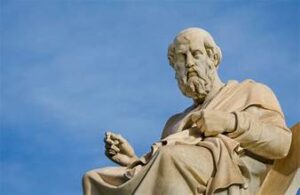
In the realm of ethical thought, Aristotle’s philosophy stands out as a timeless guide. His principles, rooted in virtue ethics, offer valuable insights for navigating the complex moral landscape of today’s world. This article explores how Aristotle’s wisdom can be applied to modern ethical dilemmas, providing a framework for making principled decisions in various aspects of life.
Understanding Aristotle’s Virtue Ethics
Aristotle’s virtue ethics, articulated in his seminal work Nicomachean Ethics, emphasizes character and virtue over rigid rules or consequentialist outcomes. According to Aristotle, virtue is a mean between extremes, achieved through habit and deliberate choice. This approach focuses on developing moral character and practical wisdom, known as phronesis, to guide ethical decision-making.
The Concept of Virtue and Practical Wisdom
At the core of Aristotle’s ethics is the idea that virtues are desirable traits of character that lie between excess and deficiency. For example, courage is the mean between recklessness and cowardice. By cultivating virtues and practicing them regularly, individuals develop the moral character necessary to make sound ethical judgments.
Practical wisdom, or phronesis, is the ability to apply virtues in specific situations. It involves not only knowing what virtue entails but also understanding how to act according to it in the context of real-life scenarios. This balance and discernment are crucial for addressing modern ethical challenges.
Applying Aristotle’s Ethics to Modern Issues
- Business Ethics and Corporate Responsibility
In today’s business environment, ethical dilemmas frequently arise, from corporate social responsibility to fair labor practices. Aristotle’s virtue ethics can guide business leaders in fostering a culture of integrity and accountability. By prioritizing virtues like honesty, fairness, and courage, companies can make decisions that balance profit with social responsibility.
For example, a company facing a choice between maximizing profits and ensuring fair wages for employees can use Aristotle’s framework to weigh the moral implications of their actions. Virtuous leadership would advocate for fair compensation as part of a broader commitment to the well-being of all stakeholders.
- Environmental Ethics

Environmental issues, such as climate change and resource depletion, pose significant ethical questions. Aristotle’s emphasis on moderation and balance can be applied to environmental stewardship. By promoting sustainability and responsible resource use, individuals and organizations can contribute to the common good while respecting the natural limits of our environment.
In practice, this means making choices that support long-term ecological balance rather than short-term gains. For instance, businesses can adopt eco-friendly practices and consumers can make sustainable choices, reflecting Aristotle’s principle of acting in accordance with virtue for the benefit of society.
- Technology and Privacy
The rapid advancement of technology has brought about new ethical concerns, particularly regarding privacy and data security. Aristotle’s virtue ethics can help guide decisions on how to handle personal information responsibly. Virtues such as respect and honesty are crucial in developing policies that protect user privacy while ensuring transparency.
Companies can apply Aristotle’s principles by implementing robust data protection measures and being honest with consumers about how their data is used. This approach not only builds trust but also aligns with the ethical commitment to respect individuals’ rights.
- Healthcare and Medical Ethics
Healthcare professionals frequently encounter ethical dilemmas, from patient consent to equitable access to care. Aristotle’s focus on virtues like compassion and justice provides a framework for addressing these issues. By prioritizing the well-being of patients and striving for fairness in healthcare delivery, medical practitioners can make ethical decisions that align with their professional responsibilities.
For example, in situations involving end-of-life care or resource allocation, healthcare providers can use Aristotle’s principles to balance respect for patient autonomy with the need for compassionate care.
Challenges and Considerations
While Aristotle’s virtue ethics offers a robust framework for ethical decision-making, applying it to contemporary issues requires careful consideration. The complexities of modern dilemmas may not always fit neatly into Aristotelian categories, and practical wisdom must be exercised to adapt ancient principles to new contexts.
Furthermore, the subjective nature of virtues means that different individuals or cultures may interpret them differently. It is essential to engage in ongoing dialogue and reflection to ensure that ethical decisions are informed by a comprehensive understanding of both Aristotelian ethics and contemporary values.
Conclusion
Aristotle’s wisdom continues to resonate in addressing today’s ethical dilemmas. His emphasis on virtue, practical wisdom, and balanced decision-making provides a timeless guide for navigating complex moral issues. By applying Aristotle’s principles, individuals and organizations can cultivate moral character and make decisions that align with both ethical integrity and the common good.

